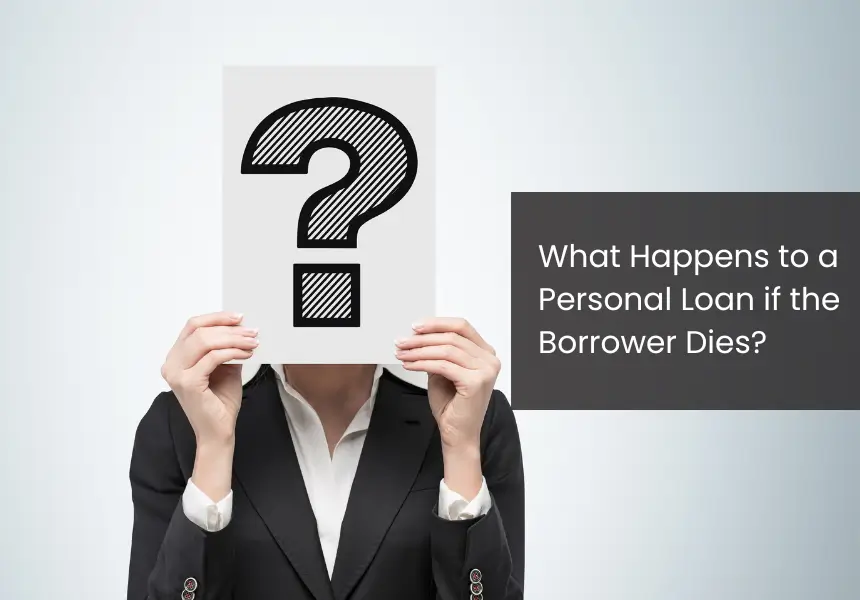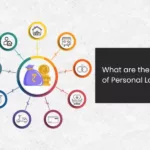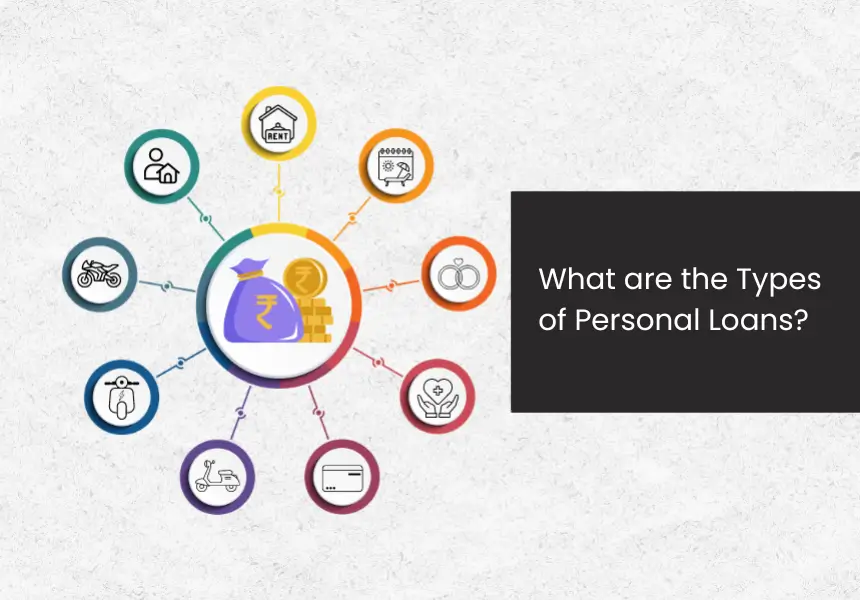
Dealing with the death of a loved one is never easy, and it can be even more stressful if there are financial matters to handle, like a personal loan.
Understanding what happens to a personal loan if the borrower dies is important to prevent additional stress during an already difficult time. This blog explains the process in simple terms, helping you know what steps to take and what to expect.
By the end, you’ll have a clear idea of how to manage a personal loan if the primary borrower passes away, making it easier to navigate this challenging situation.
Lender’s Recovery of Personal Loans
Since personal loans are unsecured, lenders cannot demand the deceased borrower’s family repay the debt, unlike secured loans, where the collateral can be seized. This unpaid loan becomes a loss for the lender (classified as a non-performing asset). This is why lenders often prefer younger borrowers who are statistically more likely to repay the loan in full.
However, if the loan has a co-signer, that person becomes responsible for repayment upon the borrower’s death. It is important to remember that inheritors are not obligated to pay off the loan or take possession of any collateral.
Role of Co-applicants or Co-signers
Co-applicants and co-signers are individuals who join the loan application alongside the primary borrower. Their role becomes important if the primary borrower passes away, as they share the responsibility for repaying the loan.
By signing the loan agreement, co-signers guarantee repayment if the primary borrower defaults or dies. If the loan was borrowed jointly with a co-applicant, both parties share equal responsibility for the entire loan amount, including principal, interest, and penalties, regardless of who benefited from the fund most.
In community property states, where marital property laws apply, surviving spouses are not responsible for repaying their partner’s personal loan unless they were co-applicants.
Loan Repayment After Death
Personal loans are unsecured, meaning they don’t require collateral. If the borrower dies during repayment, the lender cannot claim any assets from the deceased’s estate. While this protects the borrower’s family, lenders may write off the remaining debt. However, there are still important considerations. Here’s what needs to be done:
- Co-borrowers
- Shared Responsibility: When a personal loan has multiple borrowers, the remaining borrower(s) become responsible for the outstanding balance if one co-borrower dies. This is common for spouses or when someone with a good credit score co-signs for someone with a lower score.
- Exceptions: If both co-borrowers die together (in a joint accident, for example), the lender cannot recover the debt.
- Informing the Lender
- Inform: It’s important for the family of the deceased borrower to notify the lender as soon as possible. This allows the lender to update their records and potentially write off the remaining loan.
- Avoiding Unnecessary Deductions: If the loan agreement has automatic deductions (EMIs) set up, notifying the lender prevents continued deductions from the deceased’s account.
Conclusion
Personal loans are unsecured loans. This means that if the borrower has passed away, the lender cannot recover the loan from the borrower’s legal heirs. However, it is important that the borrower’s family informs the lender about the person’s demise. If the lender is not informed, it will continue to expect repayment as per the loan terms. Usually, the debt’s responsibility falls on the co-signers or co-applicants.
It’s always wise to review loan agreements carefully and seek professional advice to ensure that loved ones are not left with unexpected financial burdens. Understanding what happens to personal loans if the borrower dies helps in effective financial management.
Frequently Asked Questions
Who is responsible for a personal loan if the borrower dies?
Since personal loans are unsecured so if there was no co-applicant or co-signer, the lender will not be repaid if the borrower dies.
Can lenders go after heirs or beneficiaries for unpaid personal loans?
Generally, lenders cannot pursue heirs unless they’re a co-applicant or co-signed the loan.
How can borrowers protect their families from personal loan obligations after death?
Check if there were any co-signers or co-applicants and review loan agreements carefully.
Will the personal loan affect my spouse if they are not a co-signer?
If your spouse is not a co-signer or guarantor, they are generally not responsible for your personal loan.








